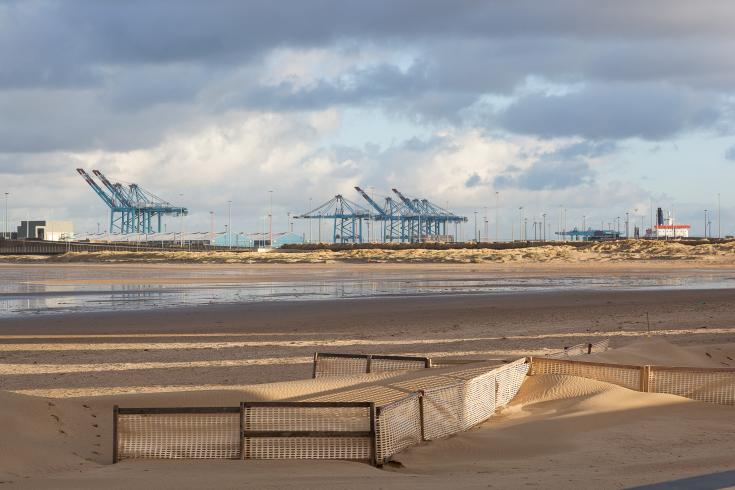Hyoffwind - the first hydrogen plant in Flanders
In Zeebrugge, the construction of Hyoffwind, the first hydrogen plant in the Province of East Flanders, was started.
On Thursday, January 30, an information session about this project (and hydrogen in general) was organized by the city of Bruges. In this context, the Province of East Flanders, partner of the HYPERION project, attended the event.
The session was divided into four parts:
- The first part focused on hydrogen itself
- The second part addressed the achievements and plans of the Port of Antwerp Bruges regarding hydrogen
- In the third part, the CEOs of Virya H2 and Aers Energy provided more information about their hydrogen projects
- The fourth part, was dedicated to the role of hydrogen in the energy transition.
The Province of East Flanders attended to learn more about the hydrogen situation in the region, the state of the art in building hydrogen plants, and examples of best practices. Through participation in the event, several responses to the partner's questions of interest were provided and may be useful for the development of the HYPERION project.
The first presentation was given by Steven Tollenaere, a professor at VIVES. He explained what hydrogen is, how it can be produced, the dangers of hydrogen, and some applications of hydrogen. Additionally, he discussed the efficiency of fuel cells, internal combustion engines, and batteries, which was interesting in the context of the good practice we identified for HYPERION, namely the Hydroville project, a vessel that uses hydrogen-powered combustion engines to sail without carbon emissions.
Stefan Van Laer, from the hydrogen team of the Port Antwerp-Bruges, presented the second part. He explained that Zeebrugge is the key to the natural gas import hub of northwest Europe. This hub is in the hands of Fluxys, and a large amount of natural gas is exported from there to other European countries. Furthermore, the mission of the Port Antwerp-Bruges is to import hydrogen gas or its derivatives from intercontinental countries to Belgium. In the end, the hydrogen backbone between Antwerp and Bruges should be ready in 2026. This information is useful for the further development of the HYPERION-project, as it gives us a better overall view of the hydrogen economy in our region.
Stephan Windels (Virya H2) provided a brief explanation about the Hyoffwind electrolyser. It is currently under construction, and it is expected to be operational by 2026. This electrolyser has a capacity of 25 MW, and will be the first operational green hydrogen production plant in Belgium. Jackij Aers (Aers Energy) told us that Aers Energy is building a hydrogen refuelling station, also located in Zeebrugge, which is expected to be ready by the end of 2025. Aers Energy aims to create a hydrogen transport hub. This part was interesting in the context of the HYPERION project, as these are both examples of hydrogen related good practices.
The last part was less relevant to the project itself, but it was interesting to gain a better understanding of hydrogen in the energy transition. The speaker was Joannes Laveyne from Ghent University. He provided attendance with some insights on how green hydrogen fits into the broader energy landscape. Joannes stated that the price of a kilogram of green hydrogen ranges between €9-14. To be economically viable, this price would need to decrease to €2-4 per kg. Additionally, he explained the cost breakdown of one kilogram of hydrogen to us, where he concluded that the impact of better electrolysers on the price of hydrogen is rather limited. The presentation ended with a few policy recommendations, which were, in turn, aligned with our project:
- Green hydrogen is too valuable/expensive and will be too scarce to use for everything. Policymakers must avoid the false balance and focus on targeted choices
- In many cases, direct electrification will provide the most optimal solution
- Green hydrogen for heating will be expensive and socially regressive
- The potential for high learning effects in electrolysis is limited, as is its impact on the levelized cost of hydrogen
The event was both interesting for the development of the HYPERION project and for gaining a better understanding of the hydrogen economy situation in the East Flanders.

